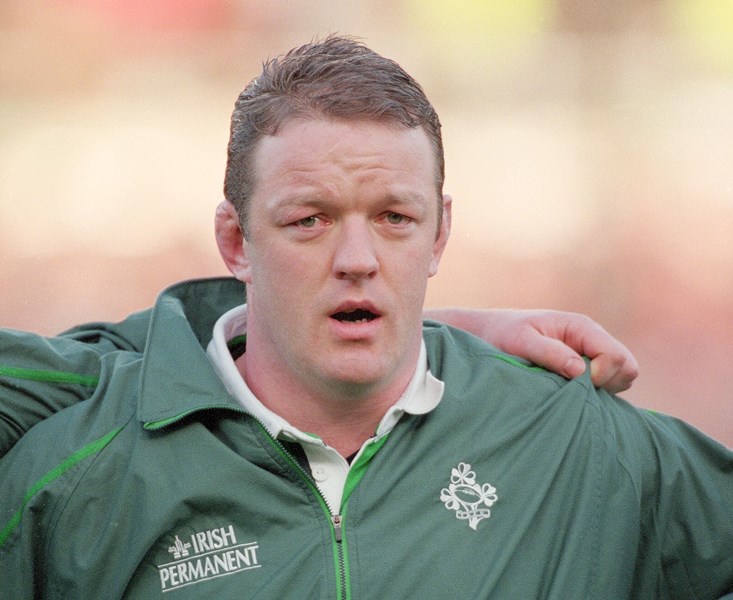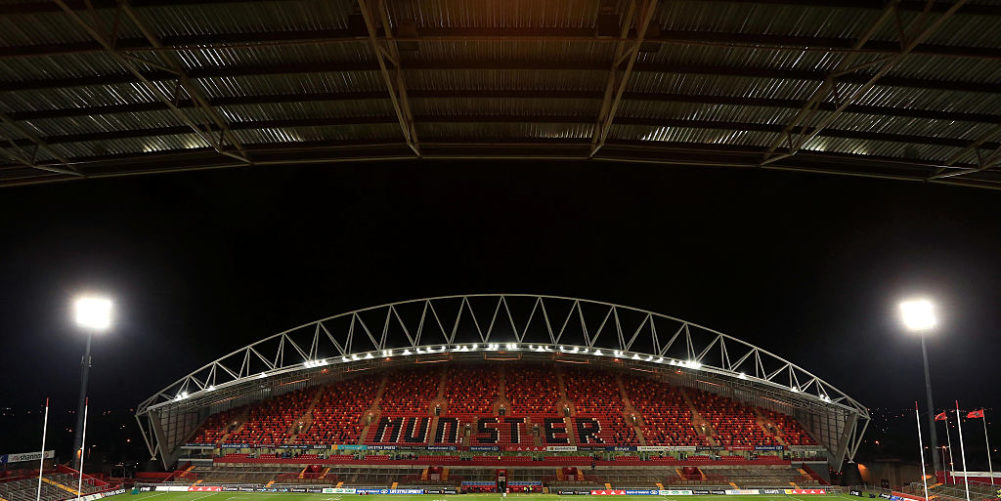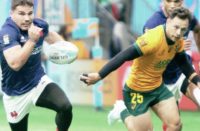THE Munster success story over the last two decades may have been lit up with ‘miracle matches' and the stirring deeds of heroic larger-than-life players – all supported by the most passionate fans on the European circuit – but at the heart of it all was a low key, hard-working visionary CEO Garrett Fitzgerald who died suddenly last week aged 65.
Amid all the blarney and romance of the Munster story and the Herculean effort of the players on the field, came the calculating professionalism of Fitzgerald as he moulded modern-day Munster into a successful, viable, professional franchise.
Fitzgerald – who had coached the team for three years in the early 1990s, a stint which included a famous win over Australia – took over as CEO in 1999 when Munster were misfiring a little and only gave up the reins last year. Everything that happened in between was on his watch.
In sheer playing terms that included two Heineken Cup titles in 2006 and 2008 – not to mention a dozen or more thrilling campaigns including two losing finals – three Celtic League titles in 2003, 2009 and 2011 and a Celtic Cup in 2005.
Off the field he oversaw the revamping of Thomond Park into a shiny, modern-day cathedral of rugby while there was the development of Musgrave Park in Cork and the introduction of a high performance centre, with appropriate facilities, at the University of Limerick.
He also caused something of a stir by enticing the All Blacks to Limerick again for a belated opening to the new stadium in 2008. Strangely some criticised it as a blatantly commercial exercise – big sponsors had to be found to attract and pay the Kiwis – as if that was in some way still to be frowned upon in a newish professional sport. What transpired was an utterly memorable rugby night and occasion enjoyed as much by the All Blacks as Munster.
He also meticulously organised their many raids into Europe, making sure the travel arrangements were all in place and team friendly and that crafty opponents never got the upper hand logistically. Factor in a strong working relationship with the all players – not always the prerogative of the CEO – and you had a considerable operator.
It was all very different when he took over. Munster still had the feel of a representative province rather than a tightly-knit professional club and, despite considerable strength in depth in terms of playing personnel, had only scratched the surface in Europe. In the 1997-98 Heineken Cup they had finished bottom of their pool and although doing better the next season had been well beaten at Colomiers in a less than volcanic quarter-final on the outskirts of Toulouse.
It was the following season, with Fitzgerald, below, on board, that it all started to kick off. In these still early days of professionalism, Fitzgerald insisted that the entire playing staff become fully pro – up to that point there had still been part time professionals involved which made training a challenge.
While new young coach Declan Kidney whipped a talented but disparate squad into shape with the help of inspirational skipper Micky Galway, Fitzgerald was determined that Thomond become a citadel again.

The IRFU had funded a modest upgrade to the terrace area at one end for the RWC1999 game between USA and Australia – an unexpectedly splendid occasion which put Thomond back on the map as a rugby venue – and Fitzgerald and his committee wanted to build on that feeling of regeneration.
The tough decision was taken to play all of Munster's big home games in Limerick which meant, to a certain extent, side-lining Cork which hitherto has been considered the rugby equal of Limerick within the province and had staged European matches itself.
Fitzgerald realised you could have only one home ground, one base and training location, one focus of attention and going forward that was to be Thomond. As a proud man of Cork himself it was a tough and tricky call.
He and the club had to develop its already close relationship with the Limerick rugby community while not ostracising the rest of a large province and pulling that off was a remarkable achievement. Everybody was kept onside, supporters arrived for every home game from far flung parts, not least Cork a three hour drive away.
In the long term he and others harboured plans for a modern day 25,0000 stadium – while preserving the famous terrace – and in the short term they spruced it up as much as possible and built on the ‘myth' of the ground. A classic pool game against Saracens – won 31-30 in the last minute in front of a then capacity 12,000 crowd – helped this process massively and the snowball began to roll.
Manager Brian O'Brien championed the operatic Stand up and Fight as the team song and Fitzgerald happily agreed for it to be belted out on the stadium PA at various opportune times before during and after the game while much was made of the Thomond tradition of complete silence for all kicks at goal, which was not only a nice touch but, as many visiting goal kickers testified, was absolutely terrifying in its own way.
To a man they confirmed they would have much preferred loud booing and jeering to concentrate the mind. They found the silence eerie and off-putting with simple kicks becoming nightmarish ordeals as the spotlight shone firmly on them through the entire process.
That first season in charge under Fitzgerald saw Munster finally hit their stride – they reached the Heineken final when they lost to Northampton – and with just the occasional dip they have been among Europe's leading clubs ever since. Just as important they retained their soul and identity which they continued to enhance throughout his tenure. Garrett's legacy was, and remains, considerable.


























